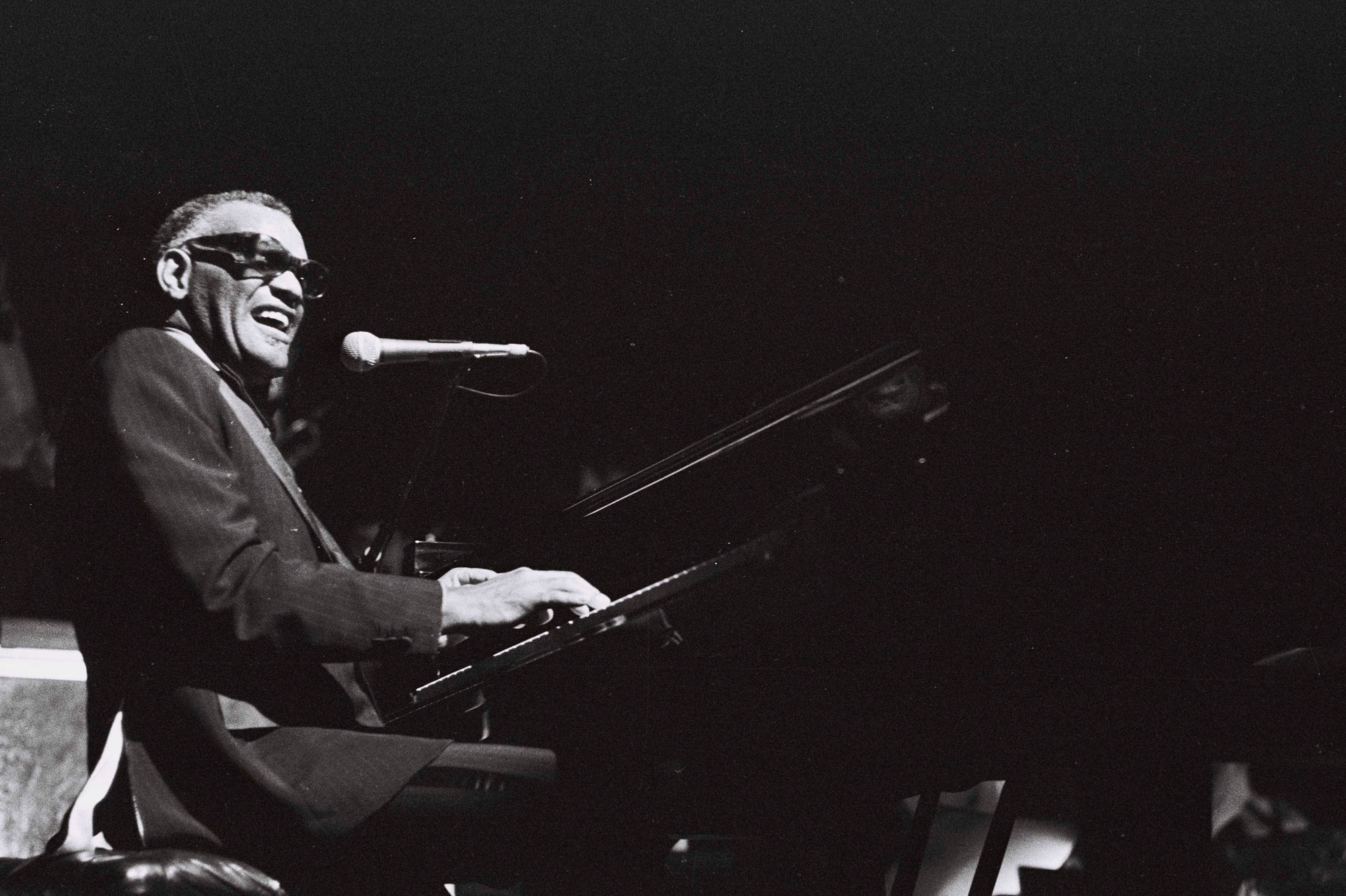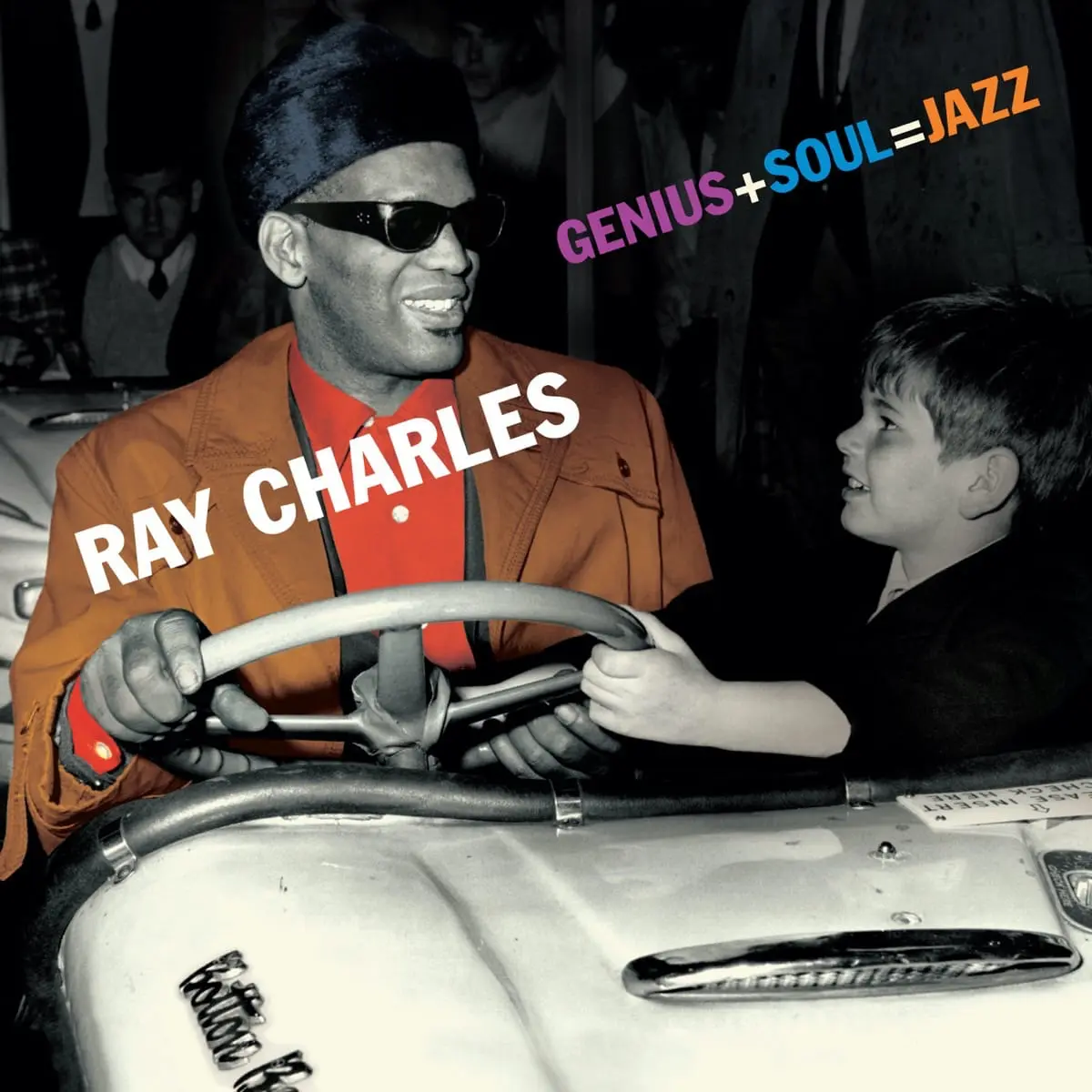Ray Charles Jazz: The Soulful Symphony That Changed Music Forever
There’s something about Ray Charles jazz that hits you right in the soul. It’s not just music—it’s a story, a journey, an emotion wrapped in melodies that stay with you long after the last note fades. If you’ve ever wondered why Ray Charles is often hailed as one of the greatest musicians of all time, this article dives deep into his legendary jazz contributions, his unforgettable style, and how he redefined the genre forever.
Now, before we dive headfirst into the world of Ray Charles jazz, let’s set the stage. Imagine yourself sitting in a dimly lit club, the air thick with anticipation. The band starts playing, and suddenly, his voice fills the room—a voice so powerful yet raw, it feels like he’s pouring his heart out just for you. That’s Ray Charles, folks. A man who didn’t just play jazz; he breathed life into it.
But what exactly makes Ray Charles jazz so special? Why does it continue to resonate with people across generations? Well, buckle up because we’re about to explore every corner of his musical genius, from his early days to his iconic hits, and everything in between. So, grab your favorite drink, sit back, and let’s unravel the magic of Ray Charles jazz together.
- Mckenna Grace In Bad Seed A Chilling Performance You Cant Miss
- Jenny Mccarthys Boyfriends A Look Back At Her Romances
Here's a quick guide to what we'll cover:
- Biography: Who Was Ray Charles?
- Early Life and Influences
- Ray Charles' Journey in Jazz
- Iconic Jazz Songs by Ray Charles
- His Unique Jazz Style
- The Legacy of Ray Charles in Jazz
- Impact on the Music Industry
- Awards and Recognition
- Collaborations That Defined Jazz
- Ray Charles Jazz in Modern Music
Biography: Who Was Ray Charles?
Before we delve into his jazz legacy, let’s take a moment to understand the man behind the music. Ray Charles Robinson, better known as Ray Charles, was born on September 23, 1930, in Albany, Georgia. His life wasn’t easy from the start, but that only fueled his passion for music and made him the legend he became.
Growing up in a poor family, Charles faced numerous challenges, including losing his sight by the age of seven due to glaucoma. But instead of letting his blindness define him, he embraced it as part of his journey. Music became his escape, his language, and ultimately, his destiny.
- Dell Curry How He Shaped Ayeshas Success Inspired Generations
- Prinzessin Iman Salma Shaping Saudis Future A Look Inside
Here’s a quick glimpse into his personal life:
| Full Name | Ray Charles Robinson |
|---|---|
| Date of Birth | September 23, 1930 |
| Place of Birth | Albany, Georgia |
| Occupation | Singer, Songwriter, Pianist |
| Genres | Jazz, R&B, Blues, Soul |
| Years Active | 1947–2004 |
Early Life and Influences
Ray Charles’ journey into jazz began long before he stepped onto a stage. As a child, he was surrounded by music—church hymns, blues records, and gospel tunes. These influences played a huge role in shaping his unique sound later in life.
One of the most significant moments in his early years was when he attended the Florida School for the Deaf and Blind. There, he learned to read and write music in Braille, mastering various instruments along the way. This foundation laid the groundwork for his incredible career.
Key Influences on Ray Charles Jazz
So, who inspired Ray Charles to create such soulful jazz? Let’s break it down:
- Nat King Cole: Known for his smooth piano playing and rich voice, Nat King Cole was a major influence on Charles’ early style.
- Louis Armstrong: With his powerful trumpet and charismatic presence, Armstrong taught Charles the importance of authenticity in music.
- Charlie Parker: Bird’s bebop style introduced Charles to the complexities of jazz improvisation.
Ray Charles' Journey in Jazz
When Ray Charles stepped into the jazz scene, he wasn’t just another artist trying to make a name for himself. He brought something entirely new to the table—a fusion of jazz, blues, gospel, and R&B that would change the landscape of music forever.
In the late 1950s and early 1960s, Charles released a series of albums that redefined jazz for a new generation. His ability to blend genres seamlessly created a sound that was both innovative and timeless.
Breaking Barriers in Jazz
What set Ray Charles apart was his fearless approach to breaking musical boundaries. At a time when jazz was largely seen as a niche genre, Charles brought it to the mainstream with hits like "Georgia on My Mind" and "Hit the Road Jack."
According to a study published in the Journal of Popular Music Studies, Ray Charles’ influence on jazz can be seen in the way he expanded its audience beyond traditional jazz enthusiasts. He proved that jazz could appeal to everyone, regardless of background or taste.
Iconic Jazz Songs by Ray Charles
Let’s talk about some of the legendary jazz songs that made Ray Charles a household name. These tracks aren’t just great—they’re historic. Each one tells a story, captures an emotion, and leaves a lasting impact on anyone who listens.
Top 5 Ray Charles Jazz Hits
- Georgia on My Mind: A soulful ballad that became Georgia’s official state song.
- Hit the Road Jack: An upbeat tune with a catchy refrain that still gets stuck in your head decades later.
- I Can’t Stop Loving You: A tender love song that showcases Charles’ incredible vocal range.
- What’d I Say: A groundbreaking track that fused gospel, R&B, and jazz into one explosive performance.
- Hallelujah I Love Her So: A classic example of Charles’ ability to blend genres effortlessly.
His Unique Jazz Style
What makes Ray Charles jazz so distinctive is his ability to combine different elements into a cohesive sound. His music isn’t confined to one genre—it’s a melting pot of influences that create something truly special.
For starters, Charles’ piano playing is legendary. He had a way of making the keys sing, whether he was playing soft, melodic lines or powerful, driving rhythms. Add to that his soulful voice, and you’ve got a recipe for greatness.
Characteristics of Ray Charles Jazz
- Vocal Expressiveness: Charles used his voice like an instrument, bending notes and adding emotion to every lyric.
- Improvisation: His live performances were full of spontaneous moments that kept audiences on their feet.
- Genre Fusion: By blending jazz with blues, gospel, and R&B, Charles created a sound that was both familiar and groundbreaking.
The Legacy of Ray Charles in Jazz
Ray Charles’ impact on jazz cannot be overstated. He didn’t just leave his mark on the genre—he transformed it. His music continues to inspire new generations of artists, proving that true art stands the test of time.
In fact, according to a report by the Grammy Museum, Ray Charles’ influence can be seen in the work of modern jazz artists like Norah Jones, Gregory Porter, and Esperanza Spalding. These musicians cite Charles as a major inspiration for their own careers.
How Ray Charles Changed Jazz
Here’s how Ray Charles left an indelible mark on jazz:
- Broadened the Audience: By bringing jazz to the mainstream, Charles introduced the genre to millions of new fans.
- Encouraged Innovation: His willingness to experiment with different styles encouraged other artists to push creative boundaries.
- Emphasized Authenticity: Charles’ music was always honest and heartfelt, setting a standard for future jazz musicians.
Impact on the Music Industry
While Ray Charles is best known for his contributions to jazz, his influence extends far beyond the genre. He paved the way for countless artists across various musical styles, proving that innovation and authenticity go hand in hand.
According to industry experts, Charles’ ability to cross over into different markets helped redefine what it meant to be a successful musician. He showed that you didn’t have to stick to one style to achieve greatness—you just had to stay true to yourself.
Lessons from Ray Charles
Here are a few key takeaways from Ray Charles’ career:
- Stay True to Your Roots: Charles never lost sight of where he came from, and that authenticity resonated with audiences.
- Take Risks: By experimenting with different genres, Charles created a sound that was uniquely his own.
- Connect with Your Audience: Whether through his music or his performances, Charles always found a way to connect with people on a personal level.
Awards and Recognition
Throughout his career, Ray Charles received numerous awards and accolades for his contributions to music. Some of the most notable include:
- Grammy Lifetime Achievement Award: Awarded in 1987, this honor recognizes Charles’ lasting impact on the music industry.
- Rock and Roll Hall of Fame Induction: Charles was inducted in 1986, cementing his place as a pioneer of rock music.
- Presidential Medal of Freedom: Awarded posthumously in 2004, this is one of the highest civilian honors in the United States.
Collaborations That Defined Jazz
Ray Charles wasn’t just a solo artist—he was a collaborator who believed in the power of working with others. Over the years, he teamed up with some of the biggest names in music, creating timeless collaborations that continue to inspire.
Notable Collaborations
- Quincy Jones: Together, they produced several groundbreaking albums that pushed the boundaries of jazz.
- Bobby Darin: Their duets showcased the versatility of both artists.
- Elvis Presley: Although they never officially recorded together, their mutual respect for each other’s work created a lasting bond.
Ray Charles Jazz in Modern Music
Even today, Ray Charles’ influence can be heard in the work of contemporary artists. From hip-hop producers sampling his tracks to jazz musicians covering his classics, his music remains relevant and inspiring.
As we look to the future of jazz, it’s clear that Ray Charles will continue to be a guiding force. His legacy reminds us that music has the power to bring people together, transcend boundaries, and touch hearts in ways words alone cannot.
Final Thoughts: Celebrating Ray Charles Jazz
As we wrap up this exploration of Ray Charles jazz, it’s important to reflect on what makes his music so special. It’s not just about the notes or the lyrics—it’s about the emotions, the stories, and the connections he created through his art.
So, the next time you hear a Ray Charles song, take a moment to appreciate the genius behind it. And if you’re feeling inspired, why not share this article with a friend or leave a comment below? Let’s keep the legacy of Ray Charles alive and thriving for generations to come.
- 9kmovies Claims Risks Alternatives Your Guide To Informed Streaming
- Mia From Rhop Secrets Scandals Success In Reality Tv

Ray Charles at the Newport Jazz Festival (July 7, 1968). Photo by David

Ray Charles, la clé de soul du jazz Dix ans déja

Ray Charles Genius+Soul=Jazz Jazz Journal